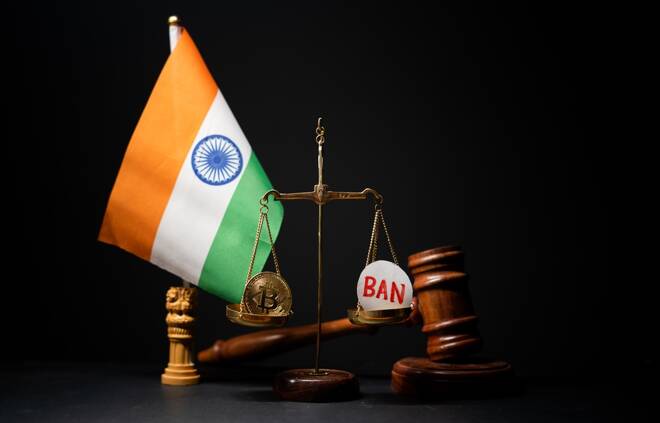Advertisement
Advertisement
Indian Banks Approach NPCI Seeking Clarity on Crypto UPI Payments
Updated: Apr 26, 2022, 12:43 GMT+00:00
Recently, the NPCI opposed the use of UPI for crypto transactions, which led Coinbase to withdraw its crypto UPI option, soon after its India debut.
Key Insights:
- Leading Indian banks have asked NPCI for a formal directive on using UPI for crypto transactions.
- Following a recent note from NPCI, major crypto exchanges disabled INR deposits through UPI.
- NPCI has “no intentions” to issue a formal circular anytime soon.
The National Payments Corporation of India (NPCI), the country’s digital payments and settlement system, recently countered the use of the Unified Payments Interface (UPI) for cryptocurrency transactions.
However, the UPI operator hasn’t made a clear decision on the same to date.
Banks Seek Formal Directive from NPCI
Several Indian banks, some of which are shareholders of NPCI, have raised the issue during a recent meeting with the payment body, seeking clarification on using UPI payments for Bitcoin transactions.
Although the names of banks written to the NPCI remain unknown, few of its major shareholders include State Bank of India, Union Bank of India, and private banking giants such as HDFC Bank, HSBC Limited, and Citi.
Banks in the country have reluctantly withdrawn UPI for crypto trading, following NPCI’s informal “verbal instructions,” according to an Economic Times report.
UPI’s use of crypto came under the lens after global giant Coinbase first allowed its users to utilize the facility to make rupee deposits for buying cryptocurrencies. The crypto platform later blocked the feature three days after its launch in India.
An NPCI official told ET that it is unlikely that the payment body would issue any such circular soon, and there are “no intentions” to do so. If issued, bankers are sure that they would fully comply with the NPCI’s decision. Per a banker,
“If there is a formal circular to ban UPI for cryptos or VDAs, whatever is the nomenclature, the crypto industry in all likelihood would legally contest it — as they had done when RBI imposed a ban in April 2018.”
The key reason behind seeking clarification is that several banks did not understand NPCI’s decision, as the regulator is silent on IMPS (instant payment service). The meeting also discussed this issue, the banker noted.
The banker posed a question to the NPCI officials during the meeting,
“So, one may wonder whether IMPS can be used to transfer money to a crypto platform? We have no clarity, though I have a more fundamental question: Is NPCI authorized to impose an informal ban on UPI when the payment framework is governed by the Reserve Bank of India (RBI).”
The country’s central bank has been one of the most vocal oppositions regarding crypto trading. Crypto exchanges in India have faced scrutiny all through the pandemic times. In April ’21, the RBI sent out an unofficial letter to banks in the nation, asking them to stop providing services to crypto exchanges.
Why the Dilemma?
Following NPCI’s note early this month that it was “not aware” of any crypto exchanges using the UPI system, crypto wallet Mobikwik and PayTM Payments Bank have also withdrawn services from such platforms.
It is clear that payment regulators in India appear to avoid any regulatory wrangling over the matter.
Also, banks are wary about dealing with crypto providers and companies. This is because the RBI has been strangely silent on this matter so far. NPCI, although can clarify its stance on whether UPI is applicable for cryptos, cannot unilaterally decide on it.
About the Author
Sujha Sundararajanauthor
Sujha Sundararajan is a writer-journalist with 7+ years of experience in Blockchain, Cryptocurrency and in general, FinTech news reporting. Her articles have featured in multiple journals such as CoinDesk, Protos, Bitcoin Magazine, CCN, Asia Blockchain Review, BeInCrypto and EconoTimes to name a few. She holds a Master’s in Journalism from the Indian Institute of Journalism and New Media and is also an accomplished Indian classical singer.
Advertisement
